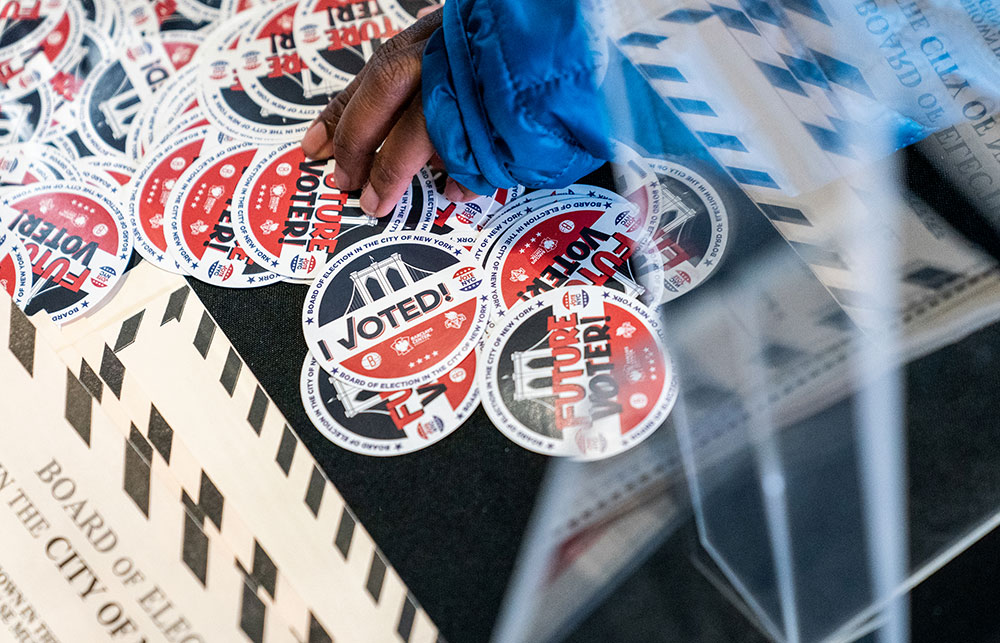
或許很多領導者會認為這種情況根本不切實際。但對許多政治高層人物和關注大選的專家們而言,這種情況并非完全沒有可能發生。今年郵寄選票的數量遠超過之前的選舉,因此計票可能要延遲數周。郵寄選票更容易在法律上遭到質疑。計票過程中可能會發生大范圍的市民騷亂和嚴重的經濟混亂,甚至可能發生憲法危機。
你內心是否有一個聲音在低聲說道:“美國從來沒有發生過選舉災難,所以這次也不會發生”?今年年初,你在讀到有些文章里說需要為新冠肺炎演變成大流行做好準備時,是否也是同樣的想法?
這正是絕大多數公司沒有為疫情做好準備的原因。我們的大腦有一種嚴重低估低概率、高影響力破壞事件的傾向,這種傾向會帶來災難性的后果。你最近或許聽說過這種事件被稱為“黑天鵝事件”。
這種糟糕的傾向源于危險的判斷錯誤,認知神經科學和行為經濟學領域的研究人員將這種情況稱為認知偏差。這些心理盲點會影響生活的方方面面,從健康到政治甚至購物都會受到影響。
我們之所以不能面對選舉災難可能發生的事實,罪魁禍首是三種認知偏差。
正常化偏差是指我們的大腦假設事情會像以往一樣正常運行,并根據短期歷史經驗評估近期的未來情況。結果導致我們會明顯低估嚴重破壞性事件的概率和影響,比如憲法危機。
另外一個主要問題是確認偏差,是指我們會嚴重傾向于只關注我們先前存在的信念和直覺,卻對其他信息視而不見。比如發生選舉災難的可能性。
我們在制定計劃的時候,會自然而然地相信未來一切都將按計劃進行。這種判斷錯誤的心理盲點,又稱規劃謬誤,會導致我們沒有為意外事件和問題做好充分準備。規劃謬誤尤其適用于選舉災難這種低概率、高影響力的黑天鵝事件。
解決這些認知偏差,需要用到概率思維。首先,為不同選舉災難情景設定一個概率。
郵寄選票有多大的概率因為法律上遭到質疑和國內沖突導致計票時間延長,比如至少延長到12月14日選舉團投票之前?高層政治人物都在非常認真地不計成本為大選之后的計票沖突做準備,真正達到了史無前例的水平,因此我認為發生這種情況的概率不低于30%。
其次,選舉團投票因為法律上的質疑而無法決定選舉結果的概率是多少?或許只有上一種情況的一半,所以我們認為概率是15%。
這時候,必須由眾議院決定總統人選。但兩黨都有辦法讓這個過程陷入僵局,可能演變成全面的憲法危機,無法達成明確的合法決議。我認為這種情況的概率是上一種情況的三分之二,即10%。
現在想象一下,假如國內沖突和法律上的質疑持續到選舉團投票,未來會發生什么。作為公司的領導者,你會想到哪些問題,你又會如何解決這些問題?(我的公司Disaster Avoidance Experts會就如何為意外危機做準備等問題,向公司提供建議,因此本文中所列的下列建議可能讓我本人受益。)
重新評估業務連續性計劃:例如,大部分公司對新冠疫情的準備嚴重不足。如果你現在還沒有全面推行虛擬辦公,在可行的情況下,做好徹底改為虛擬辦公的準備。如果無法執行虛擬辦公,就要在可能發生國內沖突之前加強辦公室的安全措施。
告訴員工發生選舉災難的極大可能性,并鼓勵他們做好必要的準備。提醒員工公司可以通過員工援助項目等途徑來幫助他們獲得任何心理健康資源。針對許多員工的工作可能被嚴重干擾的情況做好準備;確保重要崗位始終有接受過交叉培訓的員工作為后備力量,以防止意外發生。
如果你是制造商,認真研究你可能需要采取哪些措施來保護供應鏈安全。如果你是服務提供商,則應該向客戶保證你會采取保護措施,以防止服務中斷。
你需要多少資源解決潛在的問題?將你計算的數字加起來,再乘以30%。然后利用這些資源為可能出現的問題做好準備。
接下來要考慮如果選舉團投票未能決定總統人選,并且混亂持續到明年1月初,你可能面臨哪些問題以及你需要哪些資源。將這些資源乘以15%。最后,如果眾議院的投票陷入僵局并爆發憲法危機,評估你可能面臨的問題和需要的資源,并將這些資源乘以10%。
使用這種方法,你可以根據所選擇的評估結果,針對不同概率制定計劃和分配資源。這樣做等同于為自己購買了一份防范選舉災難的保險。(財富中文網)
本文作者格列布·提珀斯基現任風險管理與策略咨詢公司Disaster Avoidance Experts的首席執行官,并著有《永遠不要相信直覺:開拓型領導者如何做出最佳決策并避免商業災難》(Never Go With Your Gut: How Pioneering Leaders Make the Best Decisions and Avoid Business Disasters)一書。
翻譯:劉進龍
審校:汪皓
或許很多領導者會認為這種情況根本不切實際。但對許多政治高層人物和關注大選的專家們而言,這種情況并非完全沒有可能發生。今年郵寄選票的數量遠超過之前的選舉,因此計票可能要延遲數周。郵寄選票更容易在法律上遭到質疑。計票過程中可能會發生大范圍的市民騷亂和嚴重的經濟混亂,甚至可能發生憲法危機。
你內心是否有一個聲音在低聲說道:“美國從來沒有發生過選舉災難,所以這次也不會發生”?今年年初,你在讀到有些文章里說需要為新冠肺炎演變成大流行做好準備時,是否也是同樣的想法?
這正是絕大多數公司沒有為疫情做好準備的原因。我們的大腦有一種嚴重低估低概率、高影響力破壞事件的傾向,這種傾向會帶來災難性的后果。你最近或許聽說過這種事件被稱為“黑天鵝事件”。
這種糟糕的傾向源于危險的判斷錯誤,認知神經科學和行為經濟學領域的研究人員將這種情況稱為認知偏差。這些心理盲點會影響生活的方方面面,從健康到政治甚至購物都會受到影響。
我們之所以不能面對選舉災難可能發生的事實,罪魁禍首是三種認知偏差。
正常化偏差是指我們的大腦假設事情會像以往一樣正常運行,并根據短期歷史經驗評估近期的未來情況。結果導致我們會明顯低估嚴重破壞性事件的概率和影響,比如憲法危機。
另外一個主要問題是確認偏差,是指我們會嚴重傾向于只關注我們先前存在的信念和直覺,卻對其他信息視而不見。比如發生選舉災難的可能性。
我們在制定計劃的時候,會自然而然地相信未來一切都將按計劃進行。這種判斷錯誤的心理盲點,又稱規劃謬誤,會導致我們沒有為意外事件和問題做好充分準備。規劃謬誤尤其適用于選舉災難這種低概率、高影響力的黑天鵝事件。
解決這些認知偏差,需要用到概率思維。首先,為不同選舉災難情景設定一個概率。
郵寄選票有多大的概率因為法律上遭到質疑和國內沖突導致計票時間延長,比如至少延長到12月14日選舉團投票之前?高層政治人物都在非常認真地不計成本為大選之后的計票沖突做準備,真正達到了史無前例的水平,因此我認為發生這種情況的概率不低于30%。
其次,選舉團投票因為法律上的質疑而無法決定選舉結果的概率是多少?或許只有上一種情況的一半,所以我們認為概率是15%。
這時候,必須由眾議院決定總統人選。但兩黨都有辦法讓這個過程陷入僵局,可能演變成全面的憲法危機,無法達成明確的合法決議。我認為這種情況的概率是上一種情況的三分之二,即10%。
現在想象一下,假如國內沖突和法律上的質疑持續到選舉團投票,未來會發生什么。作為公司的領導者,你會想到哪些問題,你又會如何解決這些問題?(我的公司Disaster Avoidance Experts會就如何為意外危機做準備等問題,向公司提供建議,因此本文中所列的下列建議可能讓我本人受益。)
重新評估業務連續性計劃:例如,大部分公司對新冠疫情的準備嚴重不足。如果你現在還沒有全面推行虛擬辦公,在可行的情況下,做好徹底改為虛擬辦公的準備。如果無法執行虛擬辦公,就要在可能發生國內沖突之前加強辦公室的安全措施。
告訴員工發生選舉災難的極大可能性,并鼓勵他們做好必要的準備。提醒員工公司可以通過員工援助項目等途徑來幫助他們獲得任何心理健康資源。針對許多員工的工作可能被嚴重干擾的情況做好準備;確保重要崗位始終有接受過交叉培訓的員工作為后備力量,以防止意外發生。
如果你是制造商,認真研究你可能需要采取哪些措施來保護供應鏈安全。如果你是服務提供商,則應該向客戶保證你會采取保護措施,以防止服務中斷。
你需要多少資源解決潛在的問題?將你計算的數字加起來,再乘以30%。然后利用這些資源為可能出現的問題做好準備。
接下來要考慮如果選舉團投票未能決定總統人選,并且混亂持續到明年1月初,你可能面臨哪些問題以及你需要哪些資源。將這些資源乘以15%。最后,如果眾議院的投票陷入僵局并爆發憲法危機,評估你可能面臨的問題和需要的資源,并將這些資源乘以10%。
使用這種方法,你可以根據所選擇的評估結果,針對不同概率制定計劃和分配資源。這樣做等同于為自己購買了一份防范選舉災難的保險。(財富中文網)
本文作者格列布·提珀斯基現任風險管理與策略咨詢公司Disaster Avoidance Experts的首席執行官,并著有《永遠不要相信直覺:開拓型領導者如何做出最佳決策并避免商業災難》(Never Go With Your Gut: How Pioneering Leaders Make the Best Decisions and Avoid Business Disasters)一書。
翻譯:劉進龍
審校:汪皓
That possibility may sound unrealistic to many leaders. Yet it doesn’t sound so far-fetched to many top politicians and experts observing the run-up to the election. With many more mail-in ballots—which are much more vulnerable to legal challenges—than in previous elections, the counting might drag on for many weeks. It may well be accompanied by widespread civil disturbances, serious economic turmoil, and potentially a constitutional crisis.
Is a voice deep inside your gut whispering, “An election disaster has never happened before, and so it won’t happen now”? Maybe it’s the same voice you heard when reading articles at the beginning of this year about the need to prepare for COVID-19 turning into a pandemic?
That’s why the vast majority of companies weren’t prepared for the pandemic. Our brains have a disastrous tendency to underestimate greatly low-probability and high-impact disruptors, events you might have recently heard referred to as “black swans.”
This disastrous tendency comes from dangerous judgment errors that researchers in cognitive neuroscience and behavioral economics call cognitive biases. These mental blind spots impact all areas of our life, from health to politics to even shopping.
Three cognitive biases bear the biggest fault for our failure to face the truth about the possibility of an election disaster.
Normalcy bias refers to our brains assuming things will keep going as they have been—normally—and evaluate the near-term future based on our short-term past experience. As a result, we underestimate drastically both the likelihood and impact of a serious disruption, such as a constitutional crisis.
Another major problem, confirmation bias, describes our strong preference to look only for information that already supports our preexisting beliefs and gut feelings, and ignore data that doesn’t. That includes the possibility of a major election disaster.
When we make plans, we naturally believe that the future will go according to plan. That wrong-headed mental blind spot, the planning fallacy, results in us not preparing sufficiently for contingencies and problems. The planning fallacy applies especially black swan–type low-probability, high-impact events such as an election catastrophe.
To address these cognitive biases, you need to use probabilistic thinking. First, assign a probability to various election disaster scenarios.
What’s the probability that mail-in ballots will take a long time to be processed due to legal challenges and civil strife, say stretching at least until the Electoral College vote on Dec. 14? Given the serious, costly, and truly unprecedented preparations for the post-election counting battle by top politicians, I’d say no less than 30%.
After that, what’s the likelihood that the Electoral College vote will not be decisive due to legal challenges? Perhaps only half of that, so we’re at 15%.
At that point, the House of Representatives gets to decide the President. Yet both parties have ways of stalemating the process, potentially resulting in a full-blown constitutional crisis with no clear legal resolution. I’d put the likelihood of that at two-thirds of 15%, so 10%.
Now imagine what the future would look like if the civil strife and legal challenges lasted only through the Electoral College vote. What kind of problems might come up for you as a leader and how can you solve them? (My firm, Disaster Avoidance Experts, advises organizations on how to prepare for unexpected crises, and therefore I could benefit financially from organizations following the advice outlined in this article.)
Revisit your business continuity plan: The large majority of organizations were seriously underprepared for the pandemic, for example. If you’re not working all virtually now, prepare if at all possible to go to all-virtual work. If you can’t, get extra security for your office ahead of potential civil strife.
Let your employees know about the significant possibility of an election disaster, and encourage them to prepare themselves as needed. Remind them of any opportunities you provide for access to mental health resources, such as through an employee assistance program. Prepare your office for a number of your employees suffering a serious disruption in their work; make sure that the more important positions have employees cross-trained to provide backups just in case.
If you manufacture products, see where you might need to take steps to protect your supply chains. If you provide services, reassure your clients about the steps you will take to protect your services from interruptions.
How many resources would you require to address potential problems? Add them up, and multiply them by 30%. Then, go on to use those resources to prepare for this possibility.
Next, consider what problems you might face, and what resources you might need, if the Electoral College vote is indecisive, and this situation goes into early January. Multiple these resources by 15%. Finally, evaluate the problems and resources needed if the House voting ends in an impasse and a constitutional crisis, and multiply these by 10%.
Using this approach, you distribute your plans and resources across the different possibilities in accordance with your chosen evaluations. By doing so, you’re essentially buying insurance to protect yourself from an election disaster.
Gleb Tsipursky is CEO of the risk management and strategy consulting firm Disaster Avoidance Experts and author of Never Go With Your Gut: How Pioneering Leaders Make the Best Decisions and Avoid Business Disasters.






